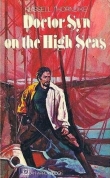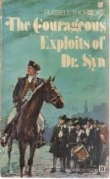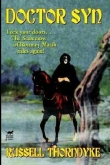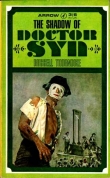
Текст книги "Red Jungle"
Автор книги: Kent Harrington
Жанр:
Триллеры
сообщить о нарушении
Текущая страница: 17 (всего у книги 20 страниц)
TWENTY-NINE
Spring 1988
Love is a strange thing. It acts independently of reason, because all great and true love creates great and true pain– pain, because all love must end in death, disappointment, or both. The stronger the love, the less reason to it. Most people don’t suffer from it, fortunately; most are indifferent types who see real love as a nuisance. It is a special kind of madness.
Olga had the madness and didn’t know it. She loved Isabella, but never thought of it as love. To her, Isabella was simply part of her life, perhaps even more than a sister. They had, after all, shared a wondrous childhood, the kind that would never be seen again, in this country or anywhere else. Their childhood had been filled with nature and walks and running, the sky and the rain and the sound of people’s voices working nearby. They had belonged to a place, and the place belonged to them. It had embraced them completely. They had been happy together as only children can be happy.
She went back to the central police station the next morning to ask for help because her mistress had not come home for the second night, nor had she sent a message. This had never happened before.
The new administrator had called from the plantation and asked for Isabella. Olga had said simply that her mistress hadn’t come home. Stunned, the administrator said he would call Isabella’s brother immediately in Paris. The administrator called back in an hour and told Olga to go back to the police station and make inquires.
The sergeant she’d spoken to barely remembered her. Because she didn’t have any more money, he didn’t even bother looking up the missing person’s form he’d filled out the day before. He told her, in a very curt way, that no white woman’s body had been reported found. Then he continued his conversation with one of the other policemen at the counter.
This was a shock. Olga had not, until that moment, thought that Isabella could be dead. The idea of her mistress being dead was impossible to fathom.
She went back to the apartment, hoping against hope that when she entered Isabella would be there talking on the phone, or sitting at her desk working, and they would not have to speak about the last few days, as they had never spoken about the men who occasionally spent the night and left early —including, once, the President of the republic. But it wasn’t to be. When she unlocked the door, the apartment was cold and the lights were still off.
She went to her mistress’s office and sat on the edge of a club sofa that had been bought in San Francisco. She stared at the phone until it rang, hours later.
“Sí, Don Roberto. Sí, entiendo, muy bien. Inmediatemente,” Olga said.
Isabella’s brother’s voice was frightened, and he spoke loudly. He was conscious of being a disappointment to everyone who had ever known him. But he was successful in the movie business, finally producing two comedies that garnered some attention. An Italian movie star—a very young girl who would later become famous in the United States– was in the room with him, and he told her to get out while he spoke to Olga. He wanted to be alone while he spoke on the phone.
“I’ll come home as soon as I can,” he told Olga. “Everything will be fine. I’m sure my sister has just done something impulsive.” Olga didn’t understand the word “impulsive”; she thought it meant sick.
“She was fine when she left,” Olga said, thinking that would help. “Not sick at all.”
“Yes. Well, I’m sure she’ll turn up. Where did she go?”
“I don’t know,” Olga said, and she was so sorry that was true. She didn’t have any idea. “But she left with Don Antonio.”
“De La Madrid? Have you called Don Antonio’s house?” Roberto asked.
“Sí, señor. But they say he’s away.”
“Well, maybe she left with him?”
“She would have come home first, Don Roberto.”
“You are very right, Olga. She wouldn’t have gone without coming home to pack.
“No, señor, and I go with her when she goes anywhere. Even Mexico.”
“Yes, of course,” he said. “GET OUT,” he snapped; the Italian girl, sensing bad news and thinking it was about a movie they were planning, had tried to come back into the room, and he’d had to shout at her. “Olga, I’ll call Antonio’s house. I want you to look everywhere for Doña Isabella. Will you promise me that? I can’t come home for a day or two. I just can’t. You understand.”
“Yes, señor.”
“I want you to go see Cardinal Ignacio De La Tierra. I’ll call him right now. I want you to go see him and tell him what’s happened. He’s Isabella’s godfather. He’ll help us find her.”
“Sí, Don Roberto.”
The Indian men who picked Isabella’s pockets didn’t know her. They had all come from her part of the country; two, in fact—the two who found her—had worked a harvest for her once, without knowing it. But Isabella’s face was bloated, and to them, she was just a dead white woman with fancy clothes whose face had gone strange. They could tell she’d been beautiful.
They dragged her out of the ditch and went through her things, then stripped her clothes off her, because they could be sold. The shoes alone were worth a fortune to these men. They fought over the shoes and the empty handbag. One man was hurt.
Drivers passed Isabella’s naked body and didn’t think to stop. Once a mother—a woman Isabella’s age, who had known her—covered her daughter’s eyes as they drove by. Because of the war it wasn’t unusual to see dead bodies along the road, mostly the victims of death squads left out like trash to be collected in the morning.
Two young Indian women found Isabella’s naked body on the way to church, after the men had left her. The sky had cleared, and was blue as it can be only in the highlands. Isabella’s white skin shone in the sun like marble.
They took the body to the church nearby, covering it with their shawls. There was something very Christian and beautiful in the way they wrapped the body in their red shawls and then carried it, making sure they didn’t drag her. There was something Christlike about the body as the two women bore it in the early morning sun, a few dogs looking on, past the houses of the miserable village. Along the way, an old man helped them.
The church was one of the oldest in Guatemala, founded in fact by one of Isabella’s people, a Cruz from Andalusia. Once inside, the two Indian girls laid the body down in front of a bank of candles. The candles were lit in a large group on the great stone floor, itself stained dark from 500 years of worship and wax. A white Christ hung on the cross above the altar.
Sunlight illuminated the Conquistadors on the building’s stained glass windows. One of the Indian girls went quickly to fetch the priest.
It was here that the spirit of Isabella Cruz finally left her body. In the ditch, she had been whole in that way that a dead person is whole until something leaves it and returns to what makes all the world. That thing left her now, and she was really gone; her spirit rose with the candle smoke, traveling and mixing.
People from the village started to enter for the noon Mass and, seeing the body, gathered around. The priest entered in his vestments; he pulled back the shawls and saw it was a European woman. He bent down and said two Our Fathers immediately, then rushed to call the police.
An hour later, the men who’d stolen Isabella’s clothes sold her shoes to used clothing dealer. They got drunk. One of the men regretted what he’d done, and gave the money away.
Guatemala City woke up to ten more years of civil war. Many innocent people would be killed, some horribly. In the weeks that followed, many lies were told about Isabella, by men who regretted telling them. She wasn’t married, so it was different. Had she been married, with a husband to look into things, perhaps it wouldn’t have been that way.
The brother never came home. He did write Isabella’s boy about what had happened. He thought the lie about a traffic accident would help. He hated himself for being a coward.
•••
President Blanco was coming to the Camino Real at seven o’clock that evening to announce that he was leaving the country due to health problems. He planned to meet with the UN’s human rights delegation just before he went down to the ballroom to make General Selva’s appointment official.
Russell looked at his watch. The younger man from the IMF was saying that they were going to hold back a new loan, as they had just heard from the US ambassador that Blanco was going to resign. It would be best to wait until the political situation was more settled, he told Russell. The young man had eaten a good breakfast, and was anxious to go back to New York, get married, and take a better job with Citibank.
“We need the loan regardless. There’s a debt payment due on Friday,” Russell said, trying to sound reasonable. “We owe 500 million dollars. It has to be repaid, or it will be impossible for us to go to the credit markets.”
“I’m sorry,” the young man said. “The decision is final. We’ve lost track of what’s going on in this damn country. How can we make a loan, if we don’t even know who is going to be running the place tomorrow?” The young man from New York looked at his colleagues, a young woman and an older man in his thirties. None of the others said anything. But it was obvious to Russell the decision had been made by higher-ups, and they had sent these young people to the country for show. They had come with no power to change anything.
“There will be wholesale capital flight,” Russell said, trying to keep the anger out of his voice. “It will be impossible for the banks here. They will have to shut down. You’ll have chaos.”
“There’s a good chance I’ll win the election,” Antonio said. He’d come into the meeting a few minutes late, and that too had upset the kid from the IMF. This was a courtesy meeting the agency was giving all the serious presidential candidates. The fact that Antonio had been late pissed the kid off. “If my party wins, we will do everything to make sure there is transparency. We will work on the deficit. We will work on the human rights problem, I guarantee you. You are speaking to the man who will be our secretary of the treasury. He’s very competent,” Antonio said, nodding to Russell.
“I understand that Mr. Cruz-Price is . . . well, that the constitution would bar him from serving in your government. He’s an American,” the kid said snidely.
“We will change that,” Antonio said. “That is a technicality.” The girl smiled at him from across the table.
“His mother was a Guatemalan. That means he has the right to dual citizenship. It will be the first piece of paper I sign. Problem solved,” Antonio said. “As you can see, Mr. Price is very qualified to act as our minister of finance. He knows what should be done, and he will have my full support.” Antonio smiled hopefully.
The IMF kid kept his game face on. He had already decided that Antonio De La Madrid wasn’t going to win.
“I’m afraid that the present political situation makes it impossible. We can come back in a few months,” the kid said. He put his pen in his pocket.
“Without the loan, there will be no political stability,” Russell said.
“I’m sorry,” the kid said. He looked at his watch, and then at Antonio.
They heard a burst of gunfire out in the street. Everyone froze. Protesters were demonstrating across the street. Depositors had been queuing up for two days, hoping the bank would reopen and allow them to withdraw their dollar accounts. Blanco had frozen the dollar accounts in a last-ditch effort to make Friday’s bond payment, which was due in dollars. But dollars had been fleeing the country anyway. Only small depositors—like those in the street, without connections—were trapped by the banking holiday.
Russell got up and went to the window. He could see the mounted police below, wading into the crowd of teachers and clerks. An officer had shot his pistol into the air. Men were throwing rocks at the bank’s plate glass windows. A white puff from a tear gas canister burst into the air. The tear gas canister—shot from the other side of the street—tumbled under the horses. It all seemed so unnecessary, Russell thought. He didn’t bother to turn around to say goodbye to the IMF people as they left.
“Rudy has been arrested,” Antonio said. He’d walked up to the window, and was watching the crowd now, too. “It was Selva. Rudy won’t be able to keep quiet. You know what they’ll do. He’ll be forced to tell them everything.”
Russell was still watching the scene down on the street. Two men had managed to pull a policeman off his horse, and were stomping him. The policeman’s horse was running riderless through the crowd. The crowd had smashed the bank’s windows, and were running through the gaping holes into the building. It wouldn’t do them any good; the bank had no dollars left.
“Then we have to act soon. Tonight,” Russell said.
“We don’t have anyone to do it. There’s no one,” Antonio said.
“I’ll do it,” Russell said. “I told you. Before Blanco makes the announcement.”
“No,” Antonio said.
Russell turned around. He looked at De La Madrid.
“Why not?”
“Because it’s suicide. I won’t have it. Besides, I need you.”
“No. It has to be done,” Russell said. “It might as well be me. I can get near him. I have access.”
“Do you want to die? Is that it?”
“Of course not,” Russell said.
“Then what is it? You don’t owe this country your life. You’re not even really one of us.”
Russell grabbed Antonio by the collar and pushed him against the wall.
“Don’t ever say that again. Do you understand? Never. My mother died here, for what? Do you want the filthy communists to win? Is that what you want, you gutless shit? They will, you know. They’re just waiting out there, with their ignorant and stupid ideas, and as soon as it gets bad enough they’ll come out of their holes and win what thirty years of war couldn’t get them. Is that what you want?” Startled by what he’d done, he let go of Antonio. “I’m sorry. I didn’t mean to . . . I’m sorry.”
Antonio looked at him. He turned his collar back where it had been pulled up.
“No. I understand. I had no right to say what I did. You are one of us. I knew your mother. She would be proud of you. Very proud. Your grandfather would be proud of you, too.” Antonio smiled at him. It was a strange smile, Russell thought. “You’re like a son to me, you know that. That was the only reason I said what I did. I apologize.”
“It’s okay,” Russell said.
“I promise you, you will have a place in the government.”
“Thank you. But I’m leaving. As soon as this is done.”
“I’ll make sure you are . . . I’ll make sure that if you want to come back some day, when this is over, that you’ll have a place here. We will owe you that,” Antonio said.
“I’m leaving with Carlos’s wife. I thought you should know that. I don’t want to keep anything from you. That’s why I have to go. I can’t stay here with her. It would be impossible.”
“I understand,” Antonio said. “You’re right, he’ll kill you if you stay here.”
“I’m going to do it there. When Blanco comes in to meet with the UN. I’m going to do it there, at the meeting,” Russell said.
“Do you want to see a priest?” Antonio said.
“No. I’m not going to die. He’s going to die.”
“God bless you,” Antonio said. “I have to go. Will I see you again?”
“No. I don’t think you should come tonight. Stay at home. If I fail, you’ll know it soon enough. If he’s dead, you have to move quickly and take power.”
“Do you think we can really win?” It seemed a strange question.
“I don’t know. Maybe. But you can’t if Carlos gets in. He won’t let go once he’s in. I know him; why should he?”
“Of course he won’t.”
They shook hands. There was nothing more to say. It was obvious that Antonio thought he was going to die. Maybe he would be successful, or maybe he wouldn’t, but nonetheless he was going to die.
“Let’s hope Rudy can hold out until tonight,” Antonio said.
“Yes. Let’s hope so,” Russell said.
•••
Important people, lifelong friends of Rudy Valladolid, had been warned. They were doing everything they could to intervene with Carlos, but Rudy had gone too far this time. Even President Blanco, who played cards with Rudy at the Club Alemán every Sunday afternoon, said that he’d gone too far, and refused to stop the inevitable. It pained him, he said, as he and the senator had grown up together. Everyone liked Rudy Valladolid, because he was charming.
The first rule in the torturer’s handbook is to leave the face alone, so that no photos can be leaked to the press. A beaten face says too much about what’s gone on.
So they had worked on Rudy Valladolid from the waist down. They’d used sand-filled garden hoses, as the handbook recommends. But he hadn’t cracked.
He’d come close. He’d lost control of his bodily functions at one point, but he held on, thinking about Isabella Cruz. It made him braver than he would have been otherwise. The men who beat him were surprised. He was an old man, after all, but he hadn’t cracked. He wanted to give Russell time. He owed him that much. He was very aware, however, that he would crack soon, and tell them everything.
“I’m sorry it’s come to this,” Carlos said. “I didn’t want this to happen.”
Carlos sat down. He had come back, after dinner with Beatrice and the children, stopped the beating and had his uncle brought to his office. He had told his men to go easy and make sure that his uncle could walk.
The office was on the military base, on the third floor, and had a view of the parade ground, that now, in the dark, was lit by stadium lights. “I truly wish you could see our point of view, uncle. I’m in an impossible situation.”
Rudy shook his head as if he were about to say something. His clothes were soiled, and he was shaking slightly. He had been given a glass of cognac, on Carlos’s insistence.
Carlos watched his uncle take a drink. Then, very carefully, Rudy reached over and put the empty glass down on the desk. Carlos noticed his uncle’s fingers had dried blood on them.
“The Americans are very concerned,” Carlos said. “Can you see my problem? I have to tell them something.”
“Could I have another? And would you mind pouring it for me? I’m afraid that would be beyond me.” Rudy spoke in the soft voice of a man that’s terrified and whose spirit has been damaged.
“Of course.” Carlos stood up, unscrewed the bottle, and poured out four fingers of brandy. He handed his uncle the glass, then put the bottle down and returned to his chair.
“This is an impossible situation, Rudy. Why don’t we find a solution?” Carlos said as Rudy drank the second drink.
Carlos looked out at the parade ground. A German shepherd ran across the grass with a sentry.
“They said there were riots. Is that true?” Rudy asked finally. There was brandy on his chin. He wiped it off.
“Yes, I’m afraid so. The banks. The people want their money,” Carlos said. “It’s natural.”
“Did you get yours out okay?” Rudy asked.
“Yes, thank God. Did you?” Carlos asked.
“Yes. Weeks ago.” Rudy smiled slightly. The second drink was doing its work. “Did Pablo do it for you? I mean, at the bank. He’s my cousin, you know,” Rudy said. He sounded very far away.
“Yes. It was him,” Carlos said. “I want you to know I didn’t want this.” He looked at his uncle. “Why don’t you tell me what you know, and I will personally put you on a plane for Miami. Then we can put this unpleasantness behind us.”
“He’s a good boy,” Rudy said. “Pablo, I mean . . . I’d like to get this over with now.”
“Good,” Carlos said, smiling. He was relieved.
“No, you don’t understand. I’d like to end this now.”
“I would, too. If you could give me one or two minor names. People who are not important, but who might show up on the lists the Americans have. That would be enough, uncle.”
“I cannot. They are all people you know. Some are people I’ve known since I was a boy. Anyway, I want you to leave that pistol you have on your belt. I’m asking as your uncle, your mother’s brother. You cannot deny me this. You have a duty to your family,” Rudy said. “No one will blame you. Everyone will understand that it was your uncle, and you had no choice.”
“Perhaps,” Carlos said. He knew immediately that he couldn’t refuse. That was the code. It was that damn Latin code, the Americans would say later. They didn’t like it, but they would understand, and they couldn’t do anything about it. “But there’s no reason. There must be a name you can give, one that doesn’t matter,” Carlos said.
“Everything matters, that’s what I’ve learned after all these years of living. Now, are you going to honor my request, boy?” He knew he would break. Carlos could see the fear of breaking in his uncle’s eyes. It was a look he’d never seen his uncle give before.
“Do you want to use the phone?” Carlos said, unholstering his pistol.
“No. I think if I spoke with anyone, I’d lose the courage. I can’t waste the courage. I never had much anyway.” He smiled, and his nephew smiled back. Carlos put his pistol on the desk.
For a moment the old man’s spirit had returned, and it was as if none of this had happened.
“When you’re President, you’ll make sure your aunt is protected,” Rudy said.
“Of course,” Carlos said, standing up. “I will make sure. I promise you.”
“Good. Well, that’s it, then,” Rudy said.
The two men looked at each other. Carlos came across the desk and the old man stood up and they gave each other the abrazo, the Latin embrace that goes back centuries. It was formal, yet warm. The old man sat down again.
“I’ll go out for a moment then,” Carlos said.
“Yes. Go out. It’s a beautiful night,” his uncle said. Carlos nodded and closed the door behind him.
He walked down the long corridor, with its trophies and green linoleum and photos of past commanders of the Army, when he heard the gunshot and stopped. He pulled out his cigarettes, took one out carefully, and then looked at his watch. It took several moments for a young lieutenant to come running. It was one o’clock in the morning, almost exactly.
He would be named President today, he thought, as the young man ran past him. He had always liked his uncle. He lit the cigarette and went home.








